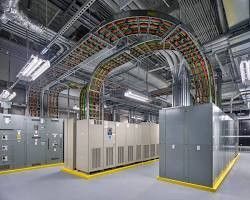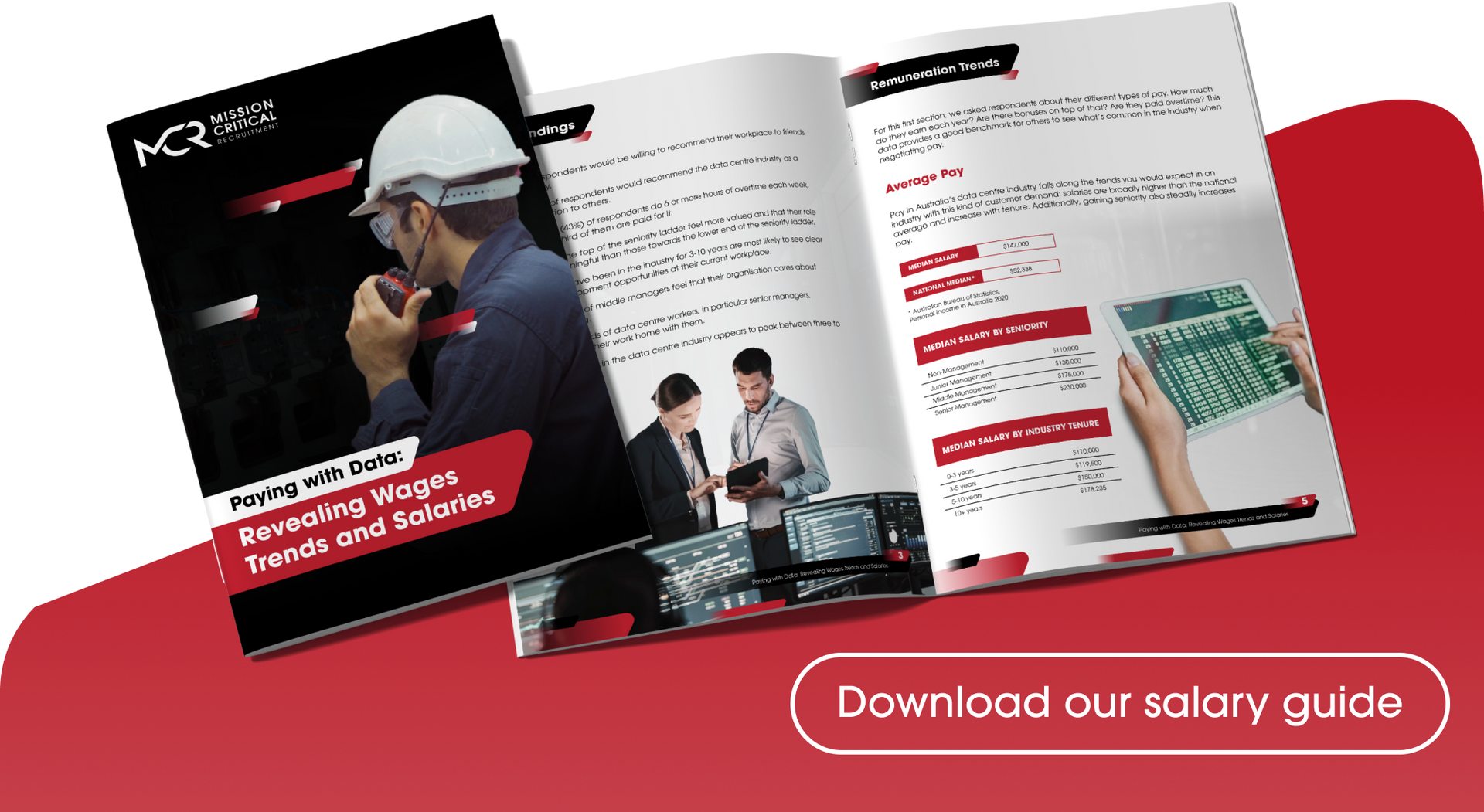6 Essential Interview Tips for Employers

Looking to secure quality data centre professionals across Australia or the greater Asia Pacific region? You’re not alone: this is a sector experiencing a serious shortage of skilled workers.
In such an environment it's imperative you capture (and keep) the attention of a very limited supply of available talent. This is where your interviewing prowess needs to be consistent; the candidate experience is one of the most important ways that you can attract top job seekers.
If you have limited experience interviewing candidates for data centre jobs or need a little refresher, here you'll find a collection of best practice interview tips for employers from our Data Centre recruitment specialists.
Do Your Prep Work
When it comes to data centre interview tips, begin with some on-point preparation. Familiarise yourself with all aspects of the open role by re-reading the position description and highlighting the most important skills, qualifications and attributes. If the position is a little out of your wheelhouse, you might like to seek further clarification from a role expert within the company. Better yet, consider asking them to join your interview panel.
Move on to reviewing each candidate's CV and professional networking profiles. You can also note down anything that jumped out at you during the CV review that you'd like to discuss in more detail. For instance, perhaps an engineering project manager overhauled their company's processes for establishing relationships from pre-sales through to equipment commissioning.
Showcase What You Can Do
In a candidate-short market, your interviews also provide a great opportunity to sell your company and showcase what you have to offer. Ensure you have several talking points ready to go that demonstrate the merits of the open role, your company and the working culture.
From here, you can map out the structure of the interview and plan the length of it, too. So often, Hiring Managers forget (or don't think about) the aspect of selling the role or the company to a candidate. While you’re busy interviewing, just remember that candidates are interviewing you and your company, too!
Plan Your Interview Questions
Now it's time to curate your interview questions. To avoid bias, you must come up with a standard set that you ask every candidate. This will also help when it comes time to evaluate answers.
Open-ended questions draw out responses that accurately reflect thought processes and personality. Aim to include a good mix of situational, behavioural and role-specific, but don't be afraid to go ‘off-script’ as you don’t want to miss an opportunity to ask follow-up questions in response to something interesting the interviewee says.
Here are some example questions for a Facilities Manager, but many are applicable for other data centre professionals as well, whether it's an Engineer, Technician or Program Manager:
Behavioural Questions
- What is the biggest challenge you faced in your current or last role and how did you overcome it?
- What do you enjoy most about being a Facilities Manager?
- How do you stay organised?
Role-Specific Questions
- What steps do you take when shutdown work needs to be done in a live environment?
- How have you dealt with a need to reduce operational costs?
- What measures have you taken to reduce potential hazards within the data centre?
Situational Questions
- Share a time you found it difficult to coordinate a maintenance project - what did you do?
- Let's say you observed one of your contractors using inadequate protective equipment. How would you address this?
- Can you think of ways to conserve energy within your centre?
Prepare to Answer Questions
As previously mentioned, top data centre talent will be interviewing you and your company, too. Preparing yourself to talk about what you love about working in your role and for the company is crucial.
For you, the questions they ask can be just as revealing as their answers to yours (if not more so) when it comes to their role wants and wishes. Some of the questions you may face answering include:
- What would you consider a successful first three and six months?
- What opportunities are there for my professional growth and progression?
- What are the company’s top priorities for the future?
- What is the biggest challenge you’re facing as a company right now, and how will this role help with it?
- How would you describe the company's culture?
- What processes do you have in place to support employees working from home, especially to help maintain communication and collaboration?
Structure the Interview
With the research phase over, move on to structuring your candidate interview. This helps alleviate candidates’ nerves, as they’ll know what to expect, and will also keep you focused to ensure you address everything you want to during the interview.
An example might be a very brief introduction of each person on the interviewing panel, then a quick description of the company, the role and why you need to fill it. You can then mention you'll turn to the interview questions and end with any questions they may have.
Work On Your Active Listening Skills
Active listening is about giving the interviewee your undivided attention and engaging with them in the moment. If done well, it puts the candidate at ease, so they speak freely, giving you an honest glimpse into their experience, personality, core beliefs and values, and better allowing you to judge if they’re the right fit.
An additional active listening benefit is that it helps ensure you've heard and understood answers correctly by using clarifying techniques. This is essential post-interview when comparing one great candidate against another.
A good active listening environment is a quiet one, so consider the space you'll use. Is there potential for staff to interrupt? Do you have comfortable chairs? Is the lighting right (i.e. no flickering bulbs or blinding sunlight)? Is it overly hot or cold? If interviewing virtually, similar considerations apply about lighting and quiet with the addition of switching off all computer notifications. Set your tech up early and do a test call and have a contingency in place in case of a tech failure.
As for active listening techniques, here are some suggestions:
- Maintain natural eye contact
- Use positive body language (nodding, slightly leaning in etc.) and avoid negative body language (crossed arms, fidgeting etc.)
- Employ the 80/20 rule by letting the candidate speak for 80% of the time, you the remaining 20%
- Activate your listening time – when the candidate is talking, listen and absorb. Try to stop your mind from wandering to what you want to say next
Help Candidates Relax
In an interview situation, candidates assess you just as much as you assess them. It's in your best interest to make sure your recruitment experience stands out above others, especially in the current climate of data centre skills shortages when candidates may have more than one job offer on the table.
Try not to keep candidates waiting for an excessive period. If you're running late, arrange for a staff member to let them know. If you can see the candidate is visibly nervous, you can say something along the lines of ‘We understand you might be nervous, but it’s natural. Feel free to take a steadying breath and we’ll get to it.’
Then set about establishing rapport with some small talk about their journey, (was there traffic, have they been to this part of town before?). As they speak about something relatively low stakes, their nerves should abate, so you can then move on to the real questions.
Consider Using Specialist Support
We're sure you'll agree that interviewing candidates is a highly valuable, but somewhat time-consuming process. If time is not on your side or you feel you'd like a little interview support, using a data centre recruitment specialist is a great option.
Here at Mission Critical, we have many years of experience sourcing and interviewing candidates to help our clients find their ideal fit. Our clients appreciate our best-practice processes ensuring a smooth and timely recruitment experience, allowing them to snag top talent before they have a chance to say yes to another offer. We can also help with giving candidates feedback and negotiating offer terms.
If this sounds like a service you'd like to use, please get in touch with one of our data centre Recruitment Specialists.















